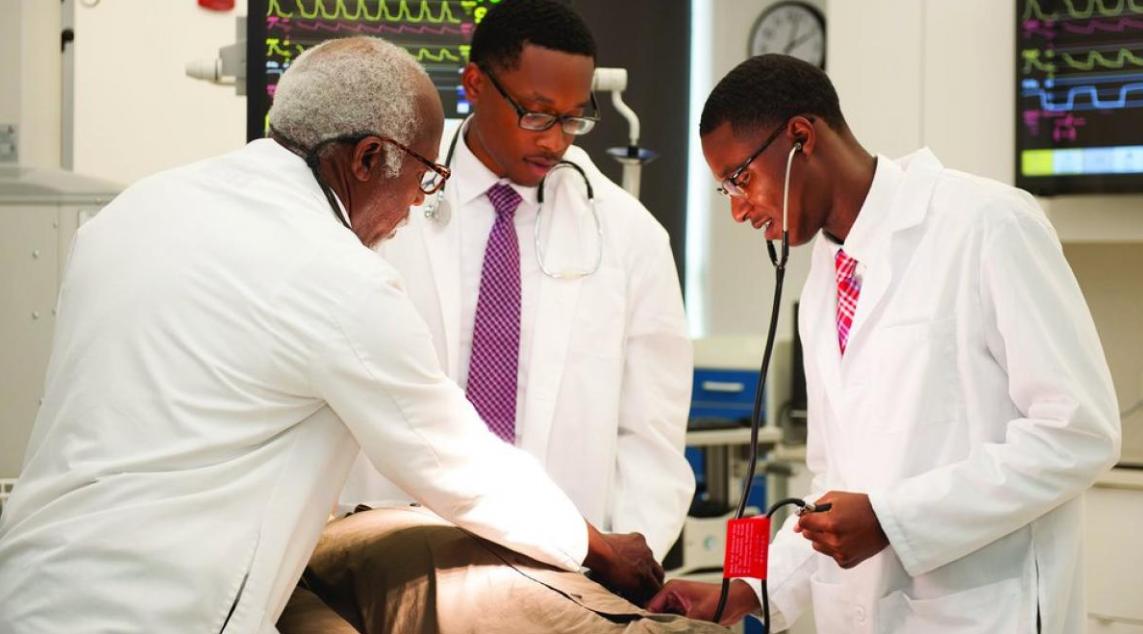In Atlanta’s vibrant medical community, Black physicians are leading innovative approaches to address chronic diseases that disproportionately affect African American populations. These dedicated healthcare providers, including those at WesB MD, are implementing comprehensive strategies that combine medical expertise with cultural understanding to improve health outcomes in the Black community.
Understanding the Challenge
Chronic diseases like diabetes, hypertension, and heart disease have historically affected Black communities at higher rates than other populations in Atlanta. This disparity stems from various factors, including socioeconomic conditions, healthcare access barriers, and systemic inequities in medical care. Black doctors in Atlanta are uniquely positioned to understand these challenges, often having witnessed them firsthand in their own communities.
Culturally Competent Care
Black physicians are revolutionizing healthcare delivery by incorporating cultural competency into their medical practice. They understand the importance of speaking to patients in familiar terms, respecting cultural beliefs about health and medicine, and acknowledging historical mistrust of the medical system. This approach helps build stronger doctor-patient relationships and improves treatment adherence.
Preventive Care Initiatives
Prevention plays a crucial role in managing chronic diseases. Atlanta’s Black doctors are implementing comprehensive screening programs specifically designed for the Black community. These initiatives include regular blood pressure checks, diabetes screenings, and heart health assessments. They’re also organizing health fairs in predominantly Black neighborhoods, making preventive care more accessible.
Community Education and Outreach
Education is key to disease prevention and management. Black physicians are conducting workshops and seminars in community centers, churches, and schools. These sessions focus on practical strategies for healthy living, including nutrition advice that considers traditional African American cuisine and lifestyle modifications that fit within cultural contexts.
Technology and Telemedicine
Recognizing the importance of accessibility, many Black doctors in Atlanta have embraced telemedicine platforms. This technology helps overcome transportation barriers and allows for more frequent check-ins with patients managing chronic conditions. Mobile health apps and remote monitoring devices are also being utilized to track patient progress between visits.

Mental Health Integration
Understanding the connection between mental and physical health, Black doctors are incorporating mental health screening and support into their chronic disease management programs. They’re addressing the stigma around mental health in the Black community while providing resources for stress management and emotional well-being.
Collaborative Care Networks
Atlanta’s Black physicians are building strong networks of healthcare providers who share their commitment to community health. These collaborations include partnerships with nutritionists, physical therapists, and mental health professionals who understand the unique needs of Black patients. This team approach ensures comprehensive care for chronic disease management.
Research and Data Collection
Many Black doctors are actively involved in research studies focused on chronic diseases in the Black community. They’re collecting valuable data about treatment effectiveness, patient outcomes, and barriers to care. This research helps inform better treatment strategies and policy recommendations for healthcare equity.
Training the Next Generation
Experienced Black physicians are mentoring medical students and residents, emphasizing the importance of cultural competency in healthcare. They’re sharing their experiences and strategies for effectively treating chronic diseases in the Black community, ensuring this important work continues into the future.
Advocacy and Policy Work
Beyond clinical practice, Black doctors in Atlanta are advocating for policy changes to address healthcare disparities. They’re working with local government, healthcare organizations, and community leaders to improve healthcare access and reduce barriers to quality care for Black residents.
Through these comprehensive efforts, Black doctors in Atlanta are making significant strides in addressing chronic diseases in their community. Their work combines medical expertise with cultural understanding, creating a model for healthcare delivery that could improve outcomes for Black patients nationwide.



